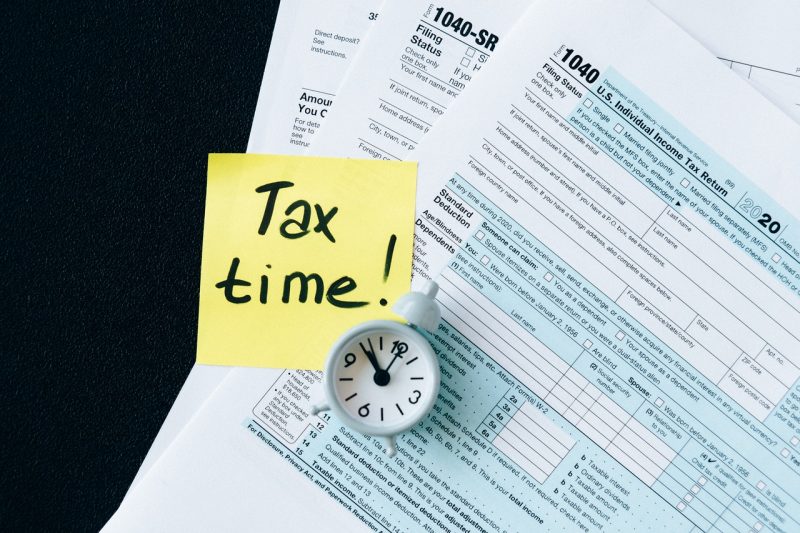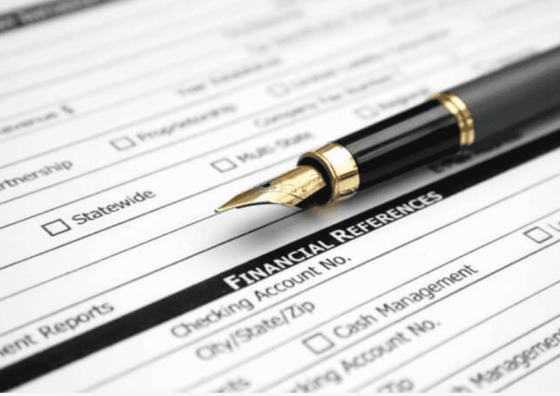You know how the saying goes; nothing is certain in this world except death and taxes. But that doesn’t stop people from wondering how to avoid paying taxes to the extent that it’s possible. After all, if Uncle Sam wants to let you keep more of your money, it would be rude to refuse.
In this article, we’re going to skim the surface of tax avoidance. There are enough exceptions and quirks in the tax code to make a whole new code, so this won’t be a comprehensive list.
These are some of the most common and applicable ways to avoid paying as much tax as possible.
How to Reduce Taxable Income
First, it’s essential to get your expectations in line with reality.
In other words, you’re going to pay tax sooner or later. There’s no getting around that fact. With that in mind, the best way to avoid paying taxes is not to earn money; simple, right?
That may seem like a joke, but there’s a kernel of truth to it because there’s a difference between what you really earned and what the federal government recognizes as income. You can take advantage of that difference using any of the 11 simple ways to avoid paying taxes legally listed below.
1. Contribute to a 401(k) or an IRA
Retirement accounts are the undisputed deans of tax avoidance. They’re accessible to most people, and the first thing experts recommend for paying less tax upfront.
Not only do contributions to a retirement account reduce your taxable income, but the funds you invest also grow tax-free until you retire. On top of that, many employers will match some or all of your 401(k) contributions, effectively giving you money for free.
However, you’ll still pay taxes on that money sooner or later. Broadly speaking, you have to start making “required minimum distributions” (RMDs) when you reach the age of 70 years and six months.
That leads to the next question, which is how to avoid taxes on RMD?
The most reliable way is to simply give it away. Statistically, if you’re at an age where you have to use RMDs, you’re probably making charitable donations anyway. Donating from your IRA is a foolproof way to reduce your tax liability.
If you meet certain conditions, you could convert your IRA into a Roth IRA, which isn’t taxed on distributions.
And, you could use the funds from your retirement account to purchase an annuity, thereby reducing the amount from your RMD calculations up to $135,000.
2. Contribute to a Health Savings Account
Health savings accounts are in the same vein as retirement accounts in that the money you put into one is deductible. Some of the details on how to pay less in taxes using an HSA fall outside this guide’s scope, but we’ll cover the basics.
An HSA is essentially a personal savings account that you can use to pay for medical expenses. Usually, an HSA works in concert with a high-deductible health insurance plan.
There are limits to the amounts you can deposit in an HSA, and if you’re enrolled in Medicare, an HSA is not an option for you. HSA limits change periodically, but the IRS-announced limits would be $3,600 for single users and $7,200 for family coverage in 2021.
3. Don’t Sell Assets
Many people fail to apply the common-sense approach to avoid adding to their income when it’s inconvenient. A formula for how to avoid taxes on investments is to hold on to assets until you’re in a position to increase your income.
Try to space out when you sell your assets instead of liquidating a large amount in a single year. If possible, save the most significant investments for years when your income will be the lowest.
That way, you can stabilize your long-term income and stay in the same tax bracket despite earning a lot more money.
4. How to Pay Less Taxes on Your Paycheck With a Flexible Spending Account
If your employer offers it, a flexible spending account (FSA) lets you funnel money directly from your paycheck into a tax-advantaged account. You can use the funds from an FSA account mostly to cover out-of-pocket medical expenses.
Insurance copays are generally included, as are a variety of medical items. There are also stores specializing in FSA-eligible items that take the guesswork out of it.
The one big caveat is that if you don’t use the money in the account by the end of the year, you’ll forfeit most of it back to your employer. Employers can choose to give you an additional two and a half months to spend the money or roll over up to $500 to the following year’s income.
5. How to Avoid Paying Taxes on a Bonus Check? Defer It!
A year-end bonus check can substantially increase your income and even put you in a higher tax bracket. In that case, you can simply ask your employer to give you the check in January of the following year.
You’ll still get the money, but you’ll avoid inflating your income, and it’s unlikely to get any pushback from your employer.
6. How to Avoid Tax on Salary by Deducting Your Mortgage Interest
If you have a mortgage, you can deduct the interest you pay on it from your income for tax purposes. This deduction applies to up to $1,000,000 of mortgage and can include your first and second mortgage.
Claim Applicable Tax Credits
Above we cover some ways to reduce your taxable income, but it’s nowhere near all the deductions for which you may qualify.
Remember that you get a standard tax deduction of $12,550 for the tax year 2021 and $12,400 for the tax year 2020. So any income below that isn’t taxable. If you’re wondering how much money do you have to make to not pay taxes, that’s the loose answer.
However, you can either choose to take an itemized deduction or a standard deduction—never both in the same year.
In addition to deductions, you may qualify for a number of tax credits. While deductions reduce your taxable income, tax credits reduce the amount you owe in taxes if you spend it in ways that qualify for the credit. It’s a subtle but important distinction.
How to Avoid Paying Income Tax With Individual Tax Credits
You can think of tax credits in terms of two broad categories—individual and business credits. The names make it clear which credits are aimed at what type of taxpayer.
Common individual tax credits include:
7. Child Tax Credit
If you have children, each child may qualify you for up to a $2,000 credit on your tax bill. Dependents who aren’t your children still count but will qualify you for up to $500 per dependent.
8. How to Avoid Income Taxes With an Earned Income Tax Credit
If you fall into specific earning categories, you could qualify for a significant tax credit. In addition to an income threshold, you’ll need to meet several other requirements, which include:
- Less than $3,650 in investment income
- Must file jointly if married
- You’re ineligible if you file Form 2555, or 2555-EZ
- At least $1 of income in the tax year
The earned income tax credit will range between $543–$6,728 based on filing status and the number of dependents for tax year 2021.
9. How to Avoid Paying Taxes at the End of the Year With a Residential Energy Credit
Residential energy credits are relatively underused but can mean significant savings under the right circumstances.
In short, it’s a federal tax credit of a portion of the installation costs of solar energy systems. The tax credit was 26% in 2020 and falls to 22% in 2021. As it stands, this credit expired in 2021, so now is the time to install those solar panels if you haven’t already.
Furthermore, you can carry forward any unused portion of the credit to the following tax year.
10. How to Pay Less Taxes Using an American Opportunity Tax Credit
Students get a lot of tax breaks, and one of the biggest is the American Opportunity Credit. The credit reduces your tax bill by up to $2,500 of undergraduate expenses.
It covers 100% of the first $2,000 you spend on school supplies and books, tuition, school fees, and equipment and 25% of the following $2,000. It applies to undergraduate students themselves or those students’ parents if they cover the educational expenses.
If you’re wondering how to reduce taxable income for high earners, American opportunity credit is not a great option.
You must have a modified adjusted gross income of $80,000 or less in 2020 or double that if filing jointly. Taxpayers with a MAGI between $80,000–$90,000 get a reduced credit, and higher incomes don’t qualify for the credit at all.
Moreover, it’s refundable credit up to $1,000, so it will increase your refund amount by up to $1,000 if you owe no taxes or have no income.
11. How to Not Pay Taxes Using a Lifetime Learning Credit
As another tax break for students, the lifetime learning credit reduces your tax bill based on the money you spend on education.
It applies to 20% of the first $10,000 you spend on tuition and educational fees. However, this credit is a little more inclusive than the American opportunity credit. It applies to most students, and you can claim it for any number of years.
You can claim both credits in the same year, but you can continue claiming the lifetime education credit even if you’ve claimed the American opportunity credit in the past. Also, this credit is not refundable.
How to Reduce Taxable Income with a Side Business
Above, we covered ways for individuals to avoid certain taxes. Another way to reduce taxes is to start a business to take advantage of business tax credits that may apply.
At this stage, it’s crucial to point out that we’re not suggesting you create a shell company or any other kind of questionable tactics. If you have a legitimate business or want to start one, the IRS offers a few ways that business can help you reduce your tax bill.
And, since you own the business and are self-employed, these are viable ways for how to avoid paying taxes on a 1099-MISC Form.
If you decide to go down the business ownership route, you’ll want to prove to the IRS that you’re a serious entrepreneur rather than a hobbyist. Besides, the expenses of opening and maintaining a business may entirely negate the tax savings you could gain.
How to Avoid Paying Taxes Legally by Deducting Business Expenses
The primary way in which a business can reduce your taxes is by creating expenses. If a company operates to generate profit, most of its costs are deductible.
The cost of goods sold and capital expenses are the two obvious ones. And you can indeed find ways to apply those deductions.
However, you should be careful to stay within what the IRS recognizes as “ordinary and necessary” expenses. You’ll have to make a powerful argument as to why your morning lattes are ordinary and necessary to your business if you want to deduct them.
How to Reduce Your Taxable Income by Deducting Business Use of Your Home and Car
For many people, a much more lenient way the IRS allows business deductions is if you use your car or parts of your home in the service of your business.
Things such as mortgage interest, utilities, and home insurance can be seen as business expenses if you have a home office.
Likewise, if you use your personal car for business purposes (most small business owners do), you can deduct mileage and other related expenses from your tax bill.
FAQs
How to avoid paying taxes on an inherited annuity?
You can’t avoid all the taxes on annuity disbursements, but there are things you can do to reduce them slightly.
One strategy is to do what the IRS calls a 1035 exchange. In a nutshell, you’re allowed to swap one type of annuity with another without a tax penalty. You can’t switch from qualified to non-qualified annuities this way, but you may be able to continue to defer paying income tax on a new annuity this way.
You also may have the option of rolling it into an IRA if you’ve also inherited the annuity owner’s IRA. This option merely changes how your inheritance is taxed but could prove advantageous.
How to avoid paying taxes on a lawsuit settlement?
First, you should know that if you’re compensated for physical injuries or sickness, that’s not taxable income, and you don’t need to worry about avoiding taxes. That also includes proceeds received for emotional distress or mental anguish if they stem from those physical injuries.
If that’s not the case, you can choose to invest the proceeds into a structured settlement or a tax-exempt holding account. And, generally, receiving lawsuit settlements over time rather than as a lump sum will reduce your tax obligations by virtue of potentially remaining below a higher tax bracket.
How to avoid paying taxes on savings bonds?
If you’re trying to reduce the taxable income generated by interest from Series EE or Series I savings bonds, you can use the education tax exclusion.
This exclusion avoids taxes on that interest if you use it to pay for eligible higher education costs for yourself, your dependents, or your spouse. It’s not a catch-all solution since you still need to meet certain requirements, but every bit counts.
How to avoid paying taxes when selling a house?
If you’re selling your primary residence with the intention of upgrading, relocation, etc., you will likely qualify for a capital gains tax exemption. Home sale profits (what you sell the house for minus what you bought it for) generate capital gains that fall under the section 121 exclusion of the Taxpayer Relief Act of 1991.
To summarize, in order to qualify, you need to:
- Own the house and have used it as your primary residence for at least two of the five years prior to the sale.
- Not have claimed the exemption in the past two years.
How to avoid paying property taxes legally?
You may have some luck reducing property taxes by getting your property tax card and looking for anything that doesn’t match your home. But a more reliable way is to see if you qualify for any exemptions based on your status.
These exemptions include:
- Homestead exemption—Applies to a greater or lesser degree based on your state of residence and income. This exemption is either a flat amount or a percentage of property tax that is excluded.
- Senior and disabled exemption—Elderly and disabled homeowners qualify for property tax exemptions in many states.
- Military exemptions—Many states also offer property tax exemptions to military personnel who use the home as their primary residence.
- Renovation exemptions—At the county level, your area may offer exemptions if you make home improvements.
- Energy incentive exemptions—Eligible renewable energy systems also qualify you for certain exemptions.
How to avoid taxes on stocks?
There are a few ways to defer or entirely deduct long-term capital gains, such as what you may earn from stock appreciation. After all, it’s difficult to make smart investments when you have to worry about how much it will increase your taxable income.
Some of those include:
- If you’re in the 10%–12% tax brackets, you’re in the clear. The long-term capital gains tax rate for you is 0%.
- Donate the stock. Instead of selling the stock, getting taxed on the gains, and then making charitable contributions, you can directly donate the stock at its appreciated value and bypass the tax.
- Offset your gains with losses. If you got lucky with some stock but not-so-lucky with others, you could deduct net capital losses from your ordinary income.
Conclusion
That should be enough to cover a variety of circumstances.
Hopefully, by now, it’s pretty clear that if you’re wondering how to pay zero tax, you basically have to earn zero dollars.
As with any other financial guide, this should serve as a starting point, and you should consult a qualified CPA or tax advisor before settling on any tax reduction method.
If all else fails, and you can’t figure out how to avoid paying taxes, you can ultimately consider using a tax relief company if you simply cannot pay your tax bill.
Tax settlement companies negotiate with the IRS on your behalf to reduce your overall tax bill. It’s a paid service but could be a substantial net gain if you owe a lot of tax.
Optima Tax Relief, Community Tax, and Anthem Tax Services are three of the most well-known and best tax relief companies.






